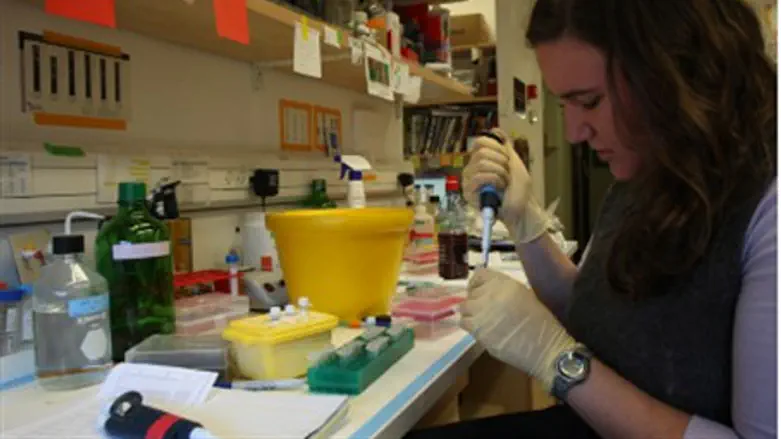
A new cancer vaccine developed by Israeli researchers has just started Phase III clinical trials at Hadassah University Medical Center in Jerusalem.
ImMucin is a 21mer synthetic vaccine composed of the entire signal peptide domain of the MUC1 protein.
The vaccine, produced by the Vaxil BioTherapeutics firm, is being tested against a type of blood cancer known as multiple myeloma. But if the vaccine works – and so far all the signs are positive – the VaxHit basic technology that supports the vaccine might also be used to fight other forms of the disease, according to the announcement on the company's website.
If the clinical trials are successful and the vaccine is approved, ImMucin may become available to the public in about six years, not only to treat cancer, but also to prevent its recurrence.
Vaxil was founded in 2006 by Dr. Lior Carmon, a biotechnology entrepreneur with a PhD in immunology from the Weizmann Institute of Science in Rehovot. The company, based in Ness Ziona, merged in June with Sheldonco.
The new vaccine works by activating the immune system by “training” T-cells to search and destroy cells with the MUC1 molecule, typically found only on cancer cells. More than 90 percent of common solid tumor cancers bear the MUC1 molecule, as well as many non-solid tumors, including lymphoma, leukemia and multiple myeloma.
Advanced-stage cancer will still require chemotherapy or surgery to remove a large tumor, Vaxil CEO Julian Levy noted, but if the cancer is brought down to size, the body will then be able to fight it, with ImMucin seen as a long-term approach to prevent recurrence.